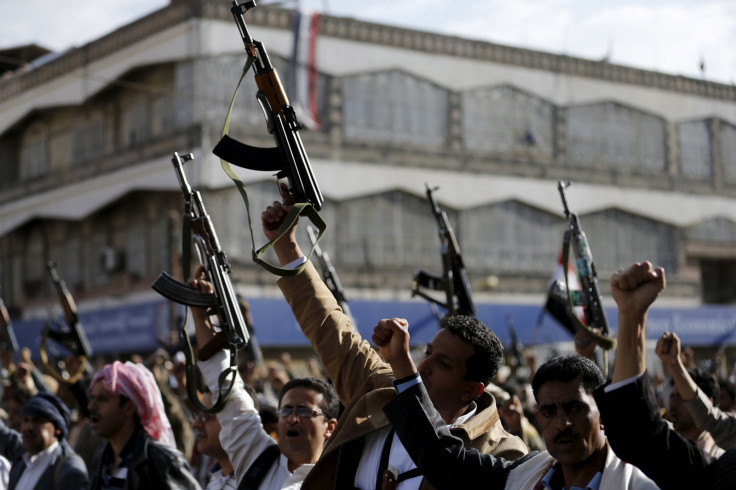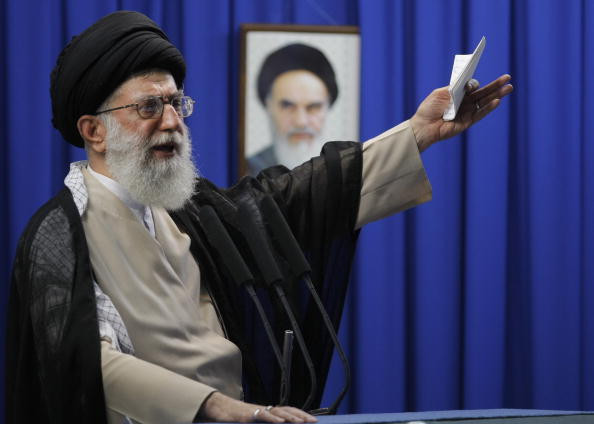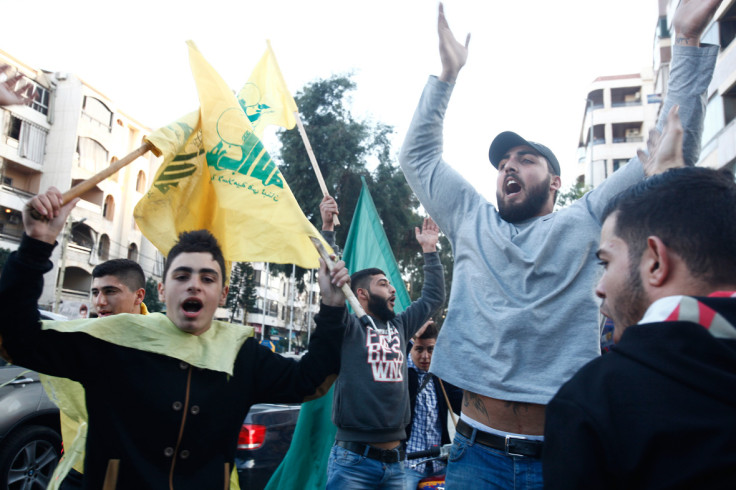Yemen Houthi crisis shows Iran has channelled spirit of Nasser

In the 1950s, Egyptian leader Gamal Abdel Nasser's regional influence was rapidly spreading in the Arab world. A novel ideology inspired by an attractive blend of socialism, Arab unity, and the rise of the working class military man, the source of legitimacy of his Pan-Arabism ran glaringly counter to that of the traditionalist Arab monarchies.
Slowly, but steadily, it gained traction. It was not long before Saudi Arabia was seemingly engulfed by a Pan-Arabist crescent, arcing from Egypt to Iraq and Syria in the north, and in Yemen to the kingdom's south.
Today, the Arab order in the aftermath of the US-led invasion of Iraq in 2003, and the Arab uprisings seven years later, has created a conspicuous vacuum in the region. Iran, along with its assorted paramilitary proxies in Lebanon, Syria, Iraq and Yemen, is attempting to take advantage.
At face value, Iran's revolutionary ideology is certainly not attractive to many. But its self-styled position and rhetoric as the anti-American and, ironically, anti-imperialist regional powerhouse resonates with enough people to make an impact, and few Arab countries have been spared.
With their Hezbollah-esque slogans and hegemonic ambitions, the Houthis, a Zaydi Shiite militia from northwestern Yemen supported by Iran, are no exception. They succeeded in staging a coup and taking over the Yemeni capital of Sana'a in late 2014/early 2015.
Close proximity to Saudi Arabian borders is the height of Iran's strategic ambitions. Control of the straits of Bab Al Mandab, the gateway to the Suez Canal, and proximity to the holy sanctuaries at Mecca and Medina, while highly unlikely, would give Iran a much-desired advantage.
Like Nasser's Pan-Arabism before it, Iran's influence in Arab countries will now experience its death in Yemen, through the efforts of Saudi Arabia. Pan-Arabism, however, was a potent threat that could not be countered by military means alone. It required an equally attractive and moving ideology, which was the role Pan-Islamism played.
Carefully crafted by a seasoned statesman in the third Saudi king, Faisal bin Abdulaziz, it appealed to a wider audience and espoused nobler goals reminiscent of the Golden Age of Islam. Pan-Islamism proved to be the nail in the increasingly debilitated Nasserist Pan-Arab coffin.
"This is not the first time the Saudis have committed their air power to aiding their allies in Yemen against the Houthis who are drawing inspiration and military support from Iran," says David Ottaway, a veteran Washington Post journalist and a senior scholar on the Middle East at the Woodrow Wilson Center in Washington.
"But the Saudi intervention is taking on far larger dimensions than ever before, and turning into a broad alliance of Sunni nations against Iran that could become a model for future Arab military interventions to combat Iranian encroachment elsewhere in the Arab world."

While many accurately point out the similarities and historical cooperation between Zaydi Islam and Sunni Islam, this fails to address the fact that the revolutionary and militant discourses espoused by the Houthis are eerily similar to Hezbollah and those of Tehran's revolutionary ideologues.
Pan-Islamism in the 21st century
While Operation Decisive Storm is certainly not sectarian in nature, make no mistake: the Saudi-led coalition is the Pan-Islamism of our era.
Better understood perhaps as "Pan-Anti-Iranianism" than Pan-Sunnism, the discourses espoused at Sharm Al-Sheikh this past weekend will be as defining as anti-communism was in defeating pan-Arabism half a century ago.
'While Operation Decisive Storm is certainly not sectarian in nature, make no mistake, the Saudi-led coalition is the Pan-Islamism of our era.'
Prior to the Houthi advance on the cultural capital of Yemen, Aden, it would have been difficult to envision Pan-Sunnism as a carefully calculated new frontier, allying militarily traditional friends of Saudi Arabia and recipients of its aid.
No one would have imagined Turkey taking part in a military alliance in which Egypt's Sisi plays a nearly equal leading role (indeed, some commentators speculated early on Thursday that Turkish involvement would not be likely).
Sure enough, however, Turkey released a statement that was heavier in its condemnation of Iran than ever before, while also clarifying that it will not provide direct military support to the Saudi-led coalition in Yemen.
In retrospect, Turkish involvement is not surprising. The Turkey of Erdogan has been positioning itself as a regional power in the Arab world, and in this goal, Turkish strategists likely see little competition in direct proximity aside from Iran. Ankara has a lot to gain and very little to lose by letting the Arabs expel Iranian influence from the region. Turkish participation, even if nominal, was the final step in a carefully constructed operation designed for long-lasting impact.
To be sure, it is premature to tell exactly what the reaction is in Tehran, but if Hezbollah leader Hassan Nasrallah's tirade of a sermon on Friday was any indication, there is panic and it caught Iran and its proxies completely off guard.
"If you would like to know the impact of Operation: Decisive Storm on those it took off guard, look no further than — do not just read — but watch and listen to Hassan Nasrallah's speech last Friday," writes Dr. Khalid Al Dikheel, a Saudi professor of Political Sociology at King Saud University in Riyadh in the Sunday issue of Al-Hayat, a leading Pan-Arab newspaper.
"As a spokesperson for the Iranian regime in the Levant, his speech had three prominent features," he writes. "One of haste: it came only one day after the start of the operation — and it dominated as the sole topic of the speech. One of a nervous emotional state — he needed to drink water more than a few times, which is not typical of him whilst speaking. And, most importantly, one of a long tirade against the operation; the inevitability of its failure, and a desperate defence of Iran and its innocence."
Further, to disregard all the contributing factors that led to what seems a brilliantly orchestrated crescendo would be to overlook the very important, if seemingly unrelated, facts.
In late 2014, a drop in oil prices caused unwanted consequences in oil-dependent economies low in cash reserves, namely countries like Russia and Iran, both already embroiled in crises that have spread them thin in Ukraine and Syria respectively.

Nowhere is this clearer than in Iran where, in a desperate bid to generate income, the government has introduced a controversial military exemption programme that would allow citizens to opt-out of mandatory service — provided they pay up, of course.
Who will be king?
There was much speculation that the drop in oil prices was a deliberate act intended to offset the booming production of shale oil in the US. In hindsight, and after Operation Decisive Storm, it would seem that if it were deliberate, and solely aimed at weakening actors that would block the cultivation of this new regional balance, then it would have been a worthy gamble.
What remains to be seen is who will become the King Faisal-figure of this generation's Pan-Sunnism. If recent photo-ops are any indication, Prince Mohammed bin Salman is a likely candidate. And with youth, vitality, and (in a nod to the very name of this operation,) decisiveness as his main traits, it would hardly come as a surprise to anyone if such were the case.
Farah Abdulaziz Al-Sweel is a Saudi commentator based in Riyadh and London. She can be found on twitter at: @FarahAlSweel
© Copyright IBTimes 2025. All rights reserved.





















